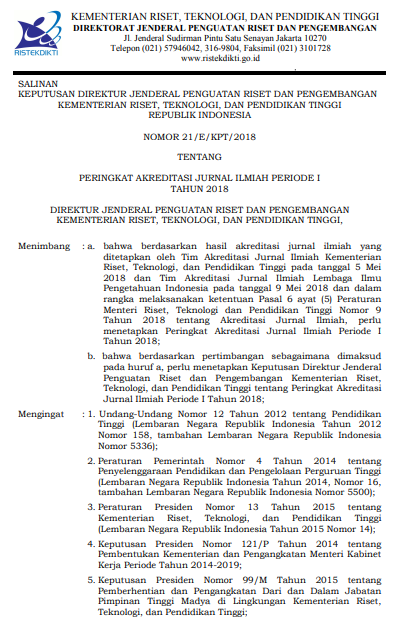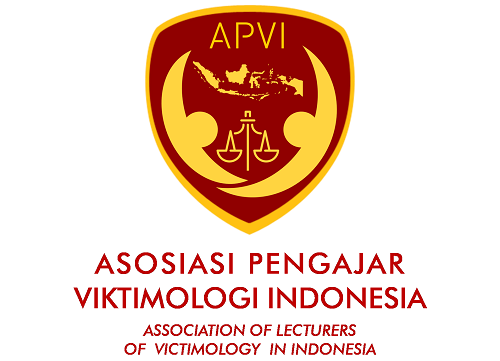The Implementation of Inheritance Based on The Tribe of Kaili Ledo and Islamic Inheritance Laws
Abstract
Law is an inherent part of Indonesian society, which does not only national law but also customary law. One of the customary laws in Indonesia is the Kaili customary law. Kaili customary law is only applicable to specific communities. Whereas Islamic law applies broadly to all Muslims. One of them is in the field of inheritance law. From many disputes that occur in inheritance law, the distribution of heritage in inheritance law has always been a major problem that occurs in society, both in Kaili's customary inheritance and Islamic inheritance laws. It is interesting to find out more that each of the rules has different dispute resolution where Kaili‘s customary inheritance law trusts Totua nu ada as a person who has the capability to distribute the heritage. This study was conducted by the Conceptual and Comparative Approach. In conclusion, Kaili indigenous community, are familiar with customary institutions, and, in Islamic law, they have the Religious Courts to resolve their inheritance disputes.
Keywords: Customary Inheritance law, Islamic Law, Division of inheritance
Full Text:
PDF View
References
Ali, Zainuddin, 2010, Pelaksanaan Hukum Waris di Indonesia, Jakarta: Sinar Grafika;
Bisri Ilham, 2008, Sistem Hukum Indonesia. Prinsip-prinsip & Implementasi Hukum Indonesia. Jakarta: Rajawali Pers;
Fathur Rahman, 1975, Ilmu Waris, Bandung: PT Al-Ma’arif;
Hajati Sri, Soelistyowati, Prawitra Thalib, Fiska Silvia Raden Roro, Erni Agustin, Omear Moechthar, 2018 "Legal Waris Adat, Islam & Burgerlijk Wetboek", Surabaya: Airlangga Universitas Press;
Hariswandi, Hukum Mempelajari dan Mengajarkan Faraid, Wordpress, https://hariswandi.wordpress.com/2011/10/31/hukum-mempelajari-dan-mengajarkan-faraid/;
Lubis K, Suhrawardi dan Komis Simanjuntak, 2018, Hukum Waris Islam, Jakarta: Sinar Grafika;
Mahkamah Agung Republik Indonesia Pengadilan Agama Sambas Kelas II. 2015. http://pa-sambas.go.id/kewenangan-pengadilan-agama/
Marzuki Piter Mahmud, 2005, Penelitian Hukum, Jakarta: Prenada Media;
Muhibbin, Moh. Dan Abdul Wahid, 2009, Hukum Kewarisan Islam, Jakarta: Sinar Grafika;
Muttaqin Yazid, Kewajiban Menggunakan Hukum Syariat dalam Warisan, http://www.nu.or.id/post/read/86300/kewajiban-menggunakan-hukum-syariat-dalam-warisan accessed on 19 May 2019
Peraturan Gubernur Sulawesi Tengah Nomor 42 tahun 2013Tentang Pedoman Peradilan Adat Di Sulawesi Tengah
Putusan Pengadilan Agama Mataram No. 85/Pdt.G/1992, 5 November 1992;
Putusan Mahkamah Agung No. 86/Pdt.G/1994, 27 Juli 1992;
Putusan Pengadilan Agama Pekalongan No. 820/G/1991, 27 Januari 1992;
Putusan Pengadilan Tinggi Agama Semarang No. 69/G/1992, 29 Desember 1994;
Putusan Mahkamah Agung No. 184 K/AG/1995, 30 September 1996;
Rahmatullah, 2016, “Kewenangan Pengadilan Agama Dalam Menyelesaikan Sengketa Perkara Waris”, Jurisprudentie
Soepomo R, 2000, Bab-Bab Tentang Hukum Adat, Pradnya Paramita, Jakarta;
Subhandi Handar, Kewajiban Umat Islam Mempelajari Hukum Kewarisan, http://handarsubhandi.blogspot.com/2014/06/kewajiban-umat-islam-mempelajari-hukum.html accessed on 20 May 2019
Syarifuddin Amir, 2004, Hukum Kewarisan Islam, Jakarta: Kencana;
Undang-Undang Republik Indonesia Nomor 7 Tahun 1989 Tentang Peradilan Agama
Wignyodipoero Soerojo, 1994, Pengantar dan Asas-asas Hukum Adat, Jakarta: CV. Haji Mas Agung.
DOI: http://dx.doi.org/10.20884/1.jdh.2019.19.2.2525
Refbacks
- There are currently no refbacks.
JURNAL DINAMIKA HUKUM Indexed by :
 | Jurnal Dinamika Hukum | |
| Faculty of Law, Universitas Jenderal Soedirman | Copyright of Jurnal Dinamika Hukum | |
| Yustisia IV Building, Law Journal Center | ISSN 2407-6562 (Online) ISSN 1410-0797 (Print) | |
| Purwokerto, Central Java, Indonesia, 53122 | JDH is licensed under a Creative Commons Attribution 4.0 International License | |






